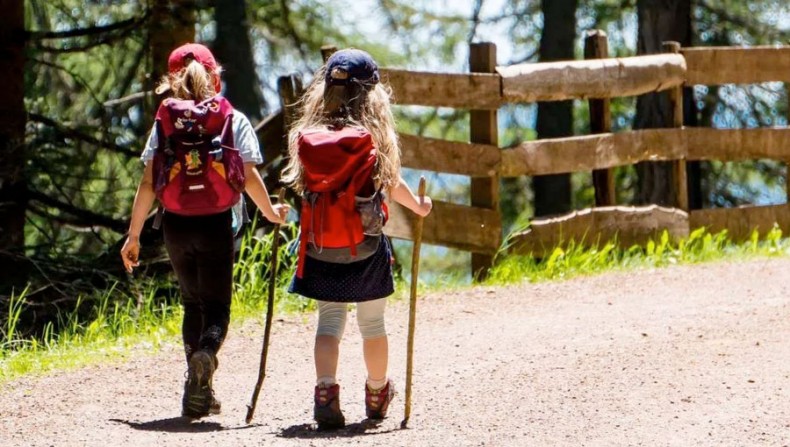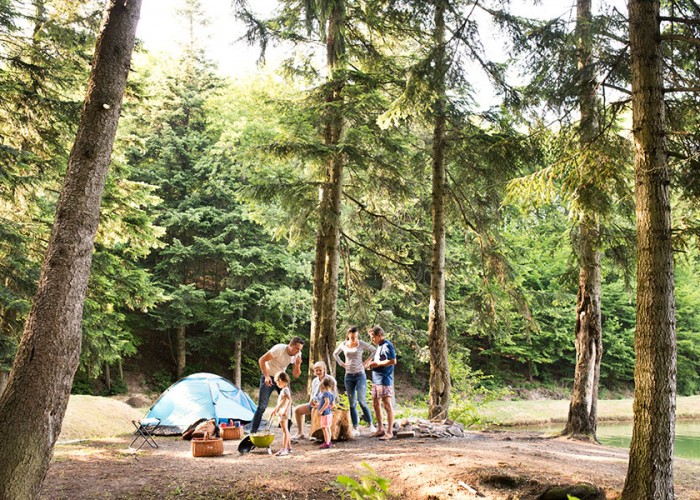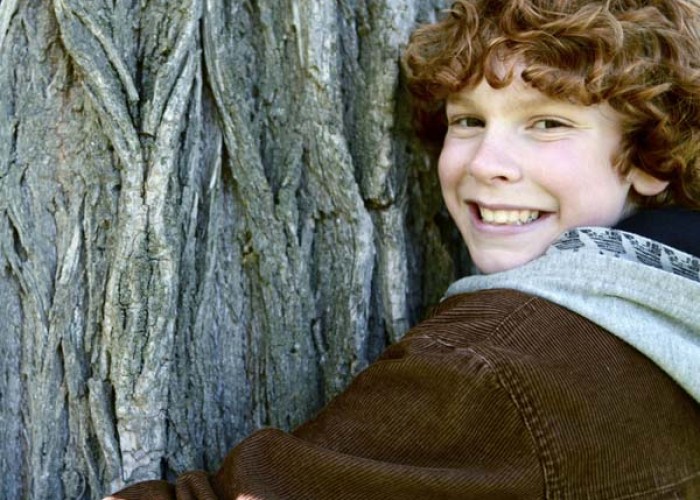9 Reasons Hiking Is Amazing for Kids
Nothing beats a day outside!
By Arthur Grant
Photo courtesy of Muddy Smiles
In this age of screens and so-called ‘digital connectedness,’ a quiet counter-culture is emerging. A growing movement of parents and guardians are recognizing the vital importance of unplugging their kids and getting them outdoors.
What does all this mean? Hiking is back, baby!
Yes, humble hiking, the back-to-basics pastime where families head out into the wild to put one foot in front of the other, is gaining in popularity once more. It is now heralded as indispensable for “whole-child” development, and there is plenty of science to back this up.
Studies now reveal that hiking is much more than just exercise; children reap social, emotional, and cognitive benefits too. It also provides opportunities to bond while learning about and appreciating our natural environment.
Keep your trail guide at the ready, because we’re about to explore exactly why hiking is so awesome for kids!
1 Develops initiative
The drive to shoulder responsibilities, complete tasks, and take initiative often comes from confidence gained through lived experiences. Hiking can help kids see the power and importance of staying motivated, involved, and aware, helping them to develop a sense of initiative at school and at home.
2 Allows children to test their limits
Testing boundaries is a natural and important part of childhood development, even when they’re driving parents up the wall. The kind of limit testing that happens during outdoor activities like hiking is a bit easier to take, because it often means testing endurance and physical ability within a relatively safe scope. They’ll be thrilled when they conquer a steep slope on their own, carry their pack without help for the first time, or break their record for longest trail.
3 Improves problem solving ability
Tackling a problem in need of solving may require logic, reason, creative thinking, and other cognitive skills, which develop and improve through experience. Time spent in nature often provides opportunities to develop these related skills, and can also create situations where a child might need to solve a problem or make an executive decision. Experience with doing so is how they develop confidence and become better problem solvers.
4 Prompts creative thinking
Often, thinking outside the box is necessary to find the best solution to a problem or method of doing something. Some kids naturally see things creatively, but for others, diverse life experiences are needed to help trigger creative thoughts. Letting kids make free, unprompted decisions and use their imaginations is helpful in encouraging creative thought, both of which can be incorporated into outdoor activities like hiking.
5 Demonstrates important safety skills
An important part of healthy, happy outdoor play includes learning the skills needed to stay safe outside. Hiking is a great way to demonstrate these skills — some, like proper foot placement, use of gear, and first aid, must be taught, but other, more basic skills will be learned naturally. It offers a great chance for kids to get acquainted with basic field safety, which is a valuable life skill.
6 Improves judgement when taking risks
Taking small, age-appropriate risks is a normal and healthy part of childhood development. Some children are naturally cautious, while others seem to be born daredevils willing to try anything once. Actual lived experience with taking risks helps children to use more mature judgement when taking them in the future, and supervised hiking provides a fairly safe opportunity to test their personal limits and boundaries.
7 Boosts resilience to stress
Divergent thinking, also called non-linear thinking, is similar to creative thought. It refers to the kind of spontaneous, creative brainstorming one might use when trying to come up with new ideas, and it’s a skill that’s developed through the use of creativity and imagination. When younger children have opportunities for imaginative outdoor play while hiking, the use of divergent thought may be encouraged.
8Bolsters ability to cope with adversity
Although we’d love to protect our kids from all adversarial situations, it’s simply not possible, nor is it healthy. Coping with occasional adversity is something they must learn to do, and building the inner strength to do so comes with lived experience, time, and your love and support. It’s worth noting that time in nature is also linked to an increase in resilience against adversity.
9 Creates quality time with parents
Engaging with your kids, whether it’s through play, experiences, or simple conversation, is key to the development of a close and healthy relationship. A family hike offers undistracted time away from the hustle and bustle of daily life, where kids and parents can have authentic discussions, be playful, and form a closer bond.
There’s a lot of good to be had when we venture outside of our comfort zone and into nature, and the same can be said for our kids. Physically, mentally, socially, and personally, hiking is a hobby that can encourage and facilitate their healthy development. It’s also a beautiful way to bond as a family, so grab your field guide, pack, and a list of local trails, and get hiking!
For more information about the benefits of hiking for kids, including 43 reasons hiking is amazing for kids, tips for hiking safely with children and a parent and child packing list, visit muddysmiles.com.
About the Author
Arthur is a father of three who writes about childhood and its simple pleasures on muddysmiles.com.-
The great outdoors
-
Share this story:





